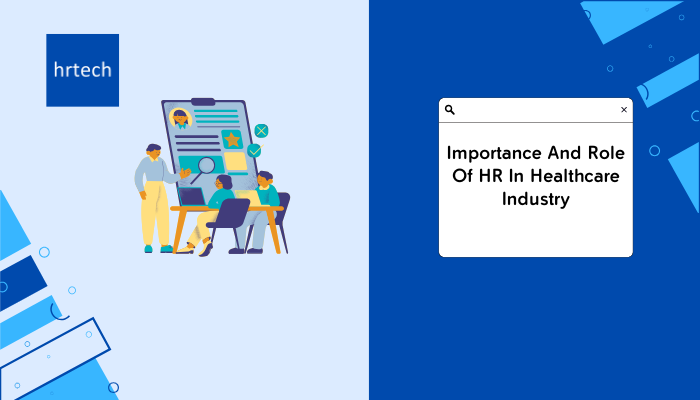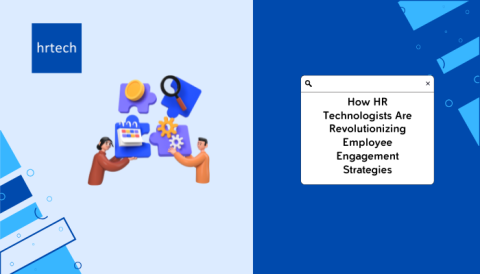If you want to get a complete idea of HR in healthcare, this guide is for you.
You’ll learn about the role of Healthcare HR, the benefits of choosing the healthcare industry as an HR, the 7 most common challenges and some of the best practices.
Keep reading till the end to explore more.
Transforming HR through Agile Workforce Solutions
HR In Healthcare And Its Importance:

HR plays a crucial role in healthcare organizations. They are responsible for managing the people who deliver patient care and keep the system running smoothly. This includes:
Hiring and training staff
Managing compensation and benefits
Ensuring compliance with regulations
Supporting employee well-being and engagement
HR’s work directly impacts patient care quality. By recruiting and retaining skilled staff, HR ensures that patients receive the best possible care.
They also support operational effectiveness by:
Managing schedules to ensure adequate staffing
Resolving disputes and maintaining a positive work environment
Providing training and development opportunities
Analyzing data to identify areas for improvement
Furthermore, HR is a strategic partner in healthcare organizations. They align the workforce with the organization’s goals and values.
HR also shapes the employee experience and culture through:
Communicating the organization’s mission and values
Creating policies that promote fairness and respect
Celebrating achievements and milestones
Providing support during difficult times
Benefits Of Choosing Healthcare HR:
More Experience and Learning
Working in healthcare HR provides unique opportunities for growth and development. Healthcare is a complex and vast industry which means there’s something always new to learn.
Did you know? In the US, the healthcare sector is 14% of the total employment market.
This means, by working in the health care niche, you’d be working in one of the biggest employment sectors, which is great for learning and experience.
Opportunity To Serve Society
Another great reason to work in the healthcare industry as an HR is because it allows you to make a difference in people’s lives.
By supporting the healthcare workforce, HR professionals indirectly contribute to patient care and outcomes.
HR Responsibilities In Healthcare:
1. Recruiting And Onboarding New Staff
HR plays an important role in finding, hiring, and training new staff in healthcare.
They post jobs, review resumes, interview candidates, and check references. HR also runs background checks, verifies credentials, and creates orientation programs for each new hire.
According to a survey, here are some statistics on where the healthcare HR section focuses:

|
Focus Areas: |
Percentages: |
|
Minimizing Time-To-Hire |
28% |
|
Boosting Retention Rate |
38% |
|
Hiring Quality |
54% |
2. Providing Essential Training
HR makes sure all staff get regular training on things like patient safety, compliance, and infection control.
They also set up classes and workshops to help staff keep their skills up-to-date.
3. Managing Schedules And Payroll
Scheduling shifts and processing payroll are important HR jobs. They create schedules that ensure there are enough nurses and doctors at all times, while still following labor laws.
HR also tracks hours worked and vacation time and ensures that everyone is paid the right amount on time.
Many hospitals use scheduling software that can automatically assign shifts based on staff preferences and availability.
4. Ensuring Regulatory Compliance
HR has to keep track of a lot of rules and regulations in healthcare. They monitor things like license renewals and mandatory training.
If there are any problems, HR does audits and works with staff to fix them.
HR might create checklists and reminder systems to help staff stay on top of compliance requirements.
5. Offering Competitive Benefits
Attracting and keeping good staff is a big part of HR’s job. They create benefits packages including health insurance, retirement plans, and other perks.
HR has to balance what employees want with what the organization can afford.

A survey of physicians found that providing better benefits was the top employee retention strategy (at 60%).
6. Promoting Diversity And Inclusion
HR works hard to make the workplace fair and welcoming for everyone.
They create policies and programs to promote diversity and inclusion. This helps staff feel valued and supported, no matter their background
7. Supporting Patient Satisfaction
When staff are well-trained and supported, it helps keep patients happy too.
HR plays a big role in this by ensuring that enough staff members are scheduled and that everyone has the skills they need.
HR might work with managers to create patient feedback surveys and reward staff who provide excellent care.
8. Managing Employee Performance
HR managers must track staff performance. They set goals, provide feedback, and conduct regular performance reviews. If there are any problems, HR steps in to help staff improve.
HR might also use a system where staff get rated on key metrics like attendance and patient satisfaction scores.
9. Resolving Conflicts And Complaints
Dealing with conflicts and complaints is another important HR task.
They look into issues, find solutions, and create a positive work environment. This includes things like team-building activities and employee wellness programs.
Most Common Challenges Faced By HR In Healthcare
1. Handling Employee Shortage
One of the biggest challenges for HR in healthcare is finding enough doctors and nurses.
There are simply not enough trained medical staff to meet the growing demand. And this shortage is expected to get worse with time because in the next 15 years, we’ll need about 139,940 more physicians (including cardiology, nephrology, and primary healthcare).
HR must get creative in recruiting, offering competitive salaries, sign-on bonuses, and other perks to attract top talent.
2. Budget Constraints And Staffing Costs
Healthcare HR must balance the need for adequate staffing with tight budgets. Salaries make up a large portion of hospital expenses – making a large portion of the total operational costs.
So the main challenge for HR is to find ways to reduce costs without compromising patient care.
3. Burnout And Stress Among Healthcare Workers
Healthcare is a high-demanding field and burnout is a major problem.
Long shifts, emotional demands, and a lack of work-life balance can take a toll on even the most dedicated professionals.
HR must prioritize employee well-being, offering support services, counseling, and stress management resources.
Encouraging time off, promoting self-care, and creating a positive work culture can help dealing with burnout.
4. Compliance With Regulations
Healthcare is heavily regulated, and laws and guidelines are constantly evolving. HR must stay up-to-date on changes related to patient privacy, data security, labor laws, and more.
Noncompliance can result in hefty fines and legal liabilities.
HR professionals need ongoing training and support to stay informed about all the necessary regulations. Collaborating with legal experts and professional associations can help.
5. Limited Opportunities For Growth And Development
Healthcare organizations often have flat hierarchies, with limited opportunities for upward mobility.
This can make it difficult for HR to have clear career paths and look for growth opportunities.
6. Managing High Turnover Rates
Healthcare HR is a demanding field, and turnover is quite common as a result. Here are some of the top reasons of high turnover rates in the healthcare industry:
Stress and burnout
Career growth opportunities
Better benefits
Offering competitive salaries, professional growth opportunities, and a supportive work environment are some of the effective ways to manage high turnover rates.
7. Balancing Strategic Initiatives With Daily Operations
With so many daily challenges and demands, it can be difficult for healthcare HR to find time for strategic planning and big-picture initiatives.
Talent management, succession planning, and leadership development can often get neglected which can hurt the organization in the long run.
Therefore, HR must take out some time for strategic work, even if it means delegating some day-to-day tasks.
Best Practices In Healthcare HR
1. Solid Recruitment And Retention Strategies
With healthcare staff shortages, HR needs strong plans to find and keep talented workers.
Start by writing clear, compelling job postings that show the organization’s mission, values, and benefits.
To attract new graduates, build relationships with local schools, attend job fairs, and offer internships. Employee referral programs also work well.
Once hired, focus on keeping staff happy and engaged. Have stay interviews where HR checks in with employees to understand their needs and concerns. This can help find issues before they cause turnover.
2. Competitive Benefits And Compensation
To get and keep top talent, healthcare organizations need to offer competitive pay and benefits.
HR should regularly compare salaries to industry standards and adjust as needed to stay ahead. Offer creative benefits like flexible schedules, and wellness programs. Modern healthcare employers integrate digital health solutions into their benefits packages to enhance employee wellness programs and boost retention rates.
Look for ways to reward and recognize employees, whether it’s bonuses, awards, or a team praise.
3. Continuous Training And Professional Development
In healthcare, continuous learning is a must.
Offer a range of training options, from required compliance courses to optional skill-building workshops.
Use online learning platforms to make training easier and cheaper. Support professional development too.
Offer tuition assistance for advanced degrees or certifications.
Send staff to conferences and seminars to learn new ideas and best practices.
4. Positive Organizational Culture
A positive, supportive work culture is key in healthcare, where the work can be emotionally and physically tough.
Regular communication through town halls, newsletters, and one-on-one check-ins builds trust and transparency.
Prioritize diversity, equity, and inclusion.
Create a welcoming environment for all staff.
Use employee resource groups, diversity training, and inclusive policies.
Employees who feel valued and supported are more engaged and provide better patient care.
5. Technology And Automation in HR Processes
Technology can streamline many HR tasks, from hiring to performance management. Use applicant tracking systems to manage high volumes of resumes.
Create online onboarding portals to get new hires up to speed quickly.
Automate goal setting, feedback, and reviews with performance management software.
Use data analytics to find trends and make informed decisions.
For example, predictive analytics can forecast staffing needs, while sentiment analysis can gauge employee morale from survey responses.
6. Work-Life Balance and Burnout Prevention
Healthcare workers face high levels of stress and burnout. This can lead to turnover, errors, and improper patient care.
HR needs to prioritize employee well-being.
Offer resources and support to help staff manage stress, like employee assistance programs, mindfulness training, or onsite counseling.
Encourage breaks, time off, and healthy habits.
Some organizations have wellness challenges, or meditation rooms to promote self-care.
Make sure workloads are manageable and that staff have the resources they need to do their jobs well.
Preventing burnout improves retention, productivity, and patient care.
7. Continuous Improvement And Innovation
Healthcare HR needs to always be improving and innovating.
Stay up-to-date on industry trends, best practices, and new technologies. Look for opportunities to learn and grow.
Attend conferences, join professional networks, and read industry publications.
Encourage employee ideas and feedback.
Create ways for staff to share suggestions and concerns.
With creativity, teamwork, and a commitment to excellence, healthcare HR can overcome challenges and make a positive difference on their organizations and patients.
Investing In Employee Well-being And Engagement:
In healthcare, employee well-being directly impacts patient care quality. Happy, healthy employees provide better care and make fewer errors.
HR strategies also play an essential role in employee satisfaction and retention. When employees feel supported and valued, they are more likely to stay with the organization. Some key strategies include:
|
Strategy: |
Benefit: |
|
Competitive compensation |
Attracts and retains top talent |
|
Comprehensive benefits |
Shows investment in employee well-being |
|
Regular feedback and praise |
Boosts morale and job satisfaction |
Using Technology For HR Efficiency
HR involves a lot of administrative work, from processing payroll to managing benefits. HR software can automate many of these tasks, saving time and reducing errors.
|
Software: |
Benefit: |
|
Applicant tracking systems |
Streamlines recruiting and hiring processes |
|
Payroll software |
Automates pay calculations and tax withholdings |
|
Benefits administration |
Simplifies enrollment and management of benefits |
Conclusion
HR in healthcare plays an important role in attracting, developing, and retaining the skilled professionals who deliver high-quality patient care.
HR also ensures compliance with complex regulations, supports employee well-being, and contributes to overall organizational success.
There are many different challenges, from handling employee shortage to balancing strategic initiatives. But with the implementation of the right strategies and tools, it’s easier to deal with all the challenges of HR in healthcare.
At hrtech, we offer training programs to help HR professionals stay up-to-date on the latest trends and industry best practices. Learn more now.





